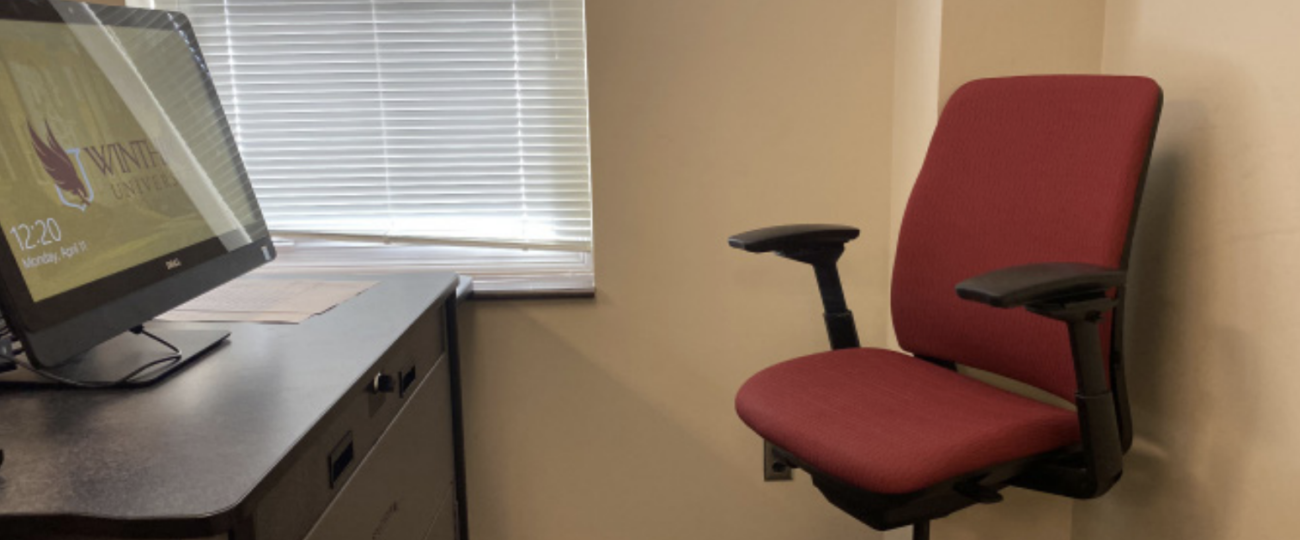Recently Winthrop University announced to most faculty and staff that due to budgetary concerns and lower enrollment numbers, there would be a reduction in the number of adjunct and non-tenure track positions.
Faculty would be notified on an as-needed basis of cuts that would affect them, according to the email Interim President George Hynd sent out before spring break.
Budget cuts will affect all areas of the university, but adjunct faculty will face the largest effects since a majority of the budget goes toward faculty and staff salaries. However, adjunct faculty serve a large role in the functioning of the university.
“Anytime you have to reduce expenses that affects people it is difficult and can affect morale, but we have to operate as efficiently as possible while maintaining the quality educational experience we are known for,” said Jeff Bellantoni, dean of the College of Visual and Performing Arts.
College deans and higher staff primarily hire adjunct faculty to offer courses on an as-needed or interim basis and have a great value to Winthrop.
“Dean Takita Sumter in the College of Arts and Sciences has been an absolute rock star, and I’m personally grateful for the support she’s given me. I also want to thank my department chair, Dr. Jennifer Leigh Disney, for being a fierce advocate for her faculty members,” said John Holder, adjunct professor of political science.
“We value our interim faculty highly and often regret being unable to repeat an interim appointment. This is, however, the nature of such appointments. Interim faculty are hired when an institution needs to expand course offerings in a particular curricular area,” said Gregory Oakes, associate dean of the College of Arts and Sciences.
Some adjunct faculty feel differently about how much they are valued at the university.
“I actually found out about the budget cuts from a student and the school newspaper, which shows how adjunct faculty is most of the time ‘out of the loop’ of what is happening in an institution. We are usually the forgotten pieces of the puzzle. We help the students, the community, and do our best, but we are not taken into account when main decisions happen,” said a professor who asked to remain anonymous.
Adjunct and interim faculty are also sometimes left out when it comes to important decisions like this one.
“The only knowledge I have about budget cuts and adjunct reductions comes from a brief email exchange with my department chair. He indicated that there would be fewer adjunct teaching opportunities next semester campus-wide including the College of Business. I remain optimistic, but there is no final word yet how many classes I will have in the Fall, if any at all,” said David Zatz, adjunct professor of business.
Reducing the number of adjunct faculty will have ripple effects across every aspect of how the university functions.
“Reducing/eliminating adjuncts will mean that even with some reduction in enrollment, full-timers will be required to take on more classes per person and/or endure larger class sizes. If that is what happens, there is great risk of losing already burdened (talented) full-time faculty members and our students will suffer from their departures as well as all the negatives that larger class sizes bring,” Zatz said.
“The numbers this year are daunting and will have a significant impact. As LEAP Program Manager, adjunct faculty are integral to our program operation. We have a dedicated group of adjunct faculty who work intensively and proactively to help ensure the success of our LEAP students,” said Jennifer Everhart, LEAP program manager.
The loss of these classes could further hurt Winthrop’s enrollment numbers.
“It’s hard to recruit and retain students if we can’t offer the courses they need and want—so this is a really delicate balancing act,” said Jo Koster, professor of English.
Adjunct professors and staff are a major part of what keeps the university running and are a key factor in offering many of the classes that students want or need to take in order to graduate.
“Adjuncts help keep this university running efficiently, and without adjuncts to teach the majority of our courses, we could be in danger of losing certain accreditations that we have worked so hard over time to get,” said Lauren Grad, director of communications for the College of Visual and Performing Arts.
An uncertain future at Winthrop and possible job loss are weighing heavily on many adjunct faculty members.
“When you have a job that you like, at an institution that seems stable, you never think that this can happen, so it was a big shock. Because of this, my plans for the future are very unstable at the moment,” said a professor who asked to remain anonymous.
Non-tenure track faculty and staff keep Winthrop University functioning and have a vital role in offering classes that attract prospective students as well as filling gaps where needed to offer core classes such as writing and languages for all students to fulfill their general education requirements.
“I think that they need to take a serious look at how to keep their hired educators, because without teachers, adjuncts and full time faculty alike, this institution would not be able to survive. Teachers are the backbone to a university, and are providing a much needed education to the future generations of tomorrow,” Grad said.




